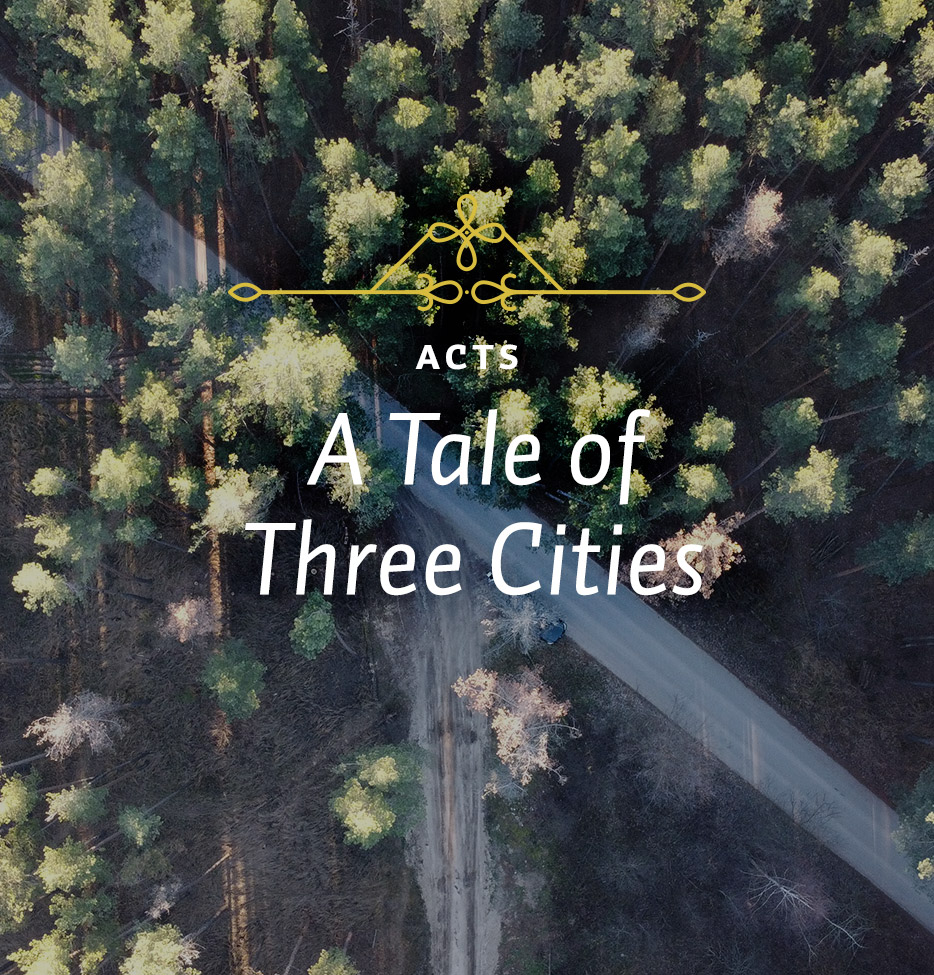We concluded yesterday’s study with a look at vv. 11-13, in which the people of Lystra mistook Paul and Barnabas to be gods, to whom they intended to sacrifice an animal. This could have happened in any ancient city, of course, but we know something very interesting and relevant about this area because of Ovid’s book, Metamorphoses. Ovid collected the mythological stories that have to do with people being changed into one thing or another, and at one place he told a story about this very area. Zeus and Hermes had once visited a valley near Lystra. They went from door to door, but the people refused to take them in. Finally, they came to a poor house occupied by a man named Philemon (the same name as that of the runaway slave of Paul’s acquaintance), and his wife Baucis. These elderly people received Zeus and Hermes. So they stayed the night. In the morning the gods took the couple up out of the city to a mountain, and when they looked back on the valley they saw that the gods had flooded it, drowning everyone. Then, while they were looking on, Philemon and Baucis saw that the gods had transformed their poor hovel into a great temple.1
This story must have been known in Lystra. So, when Paul and Barnabas did a miracle, the people inevitably thought that Zeus and Hermes had returned. And if they had returned, the last thing in the world they wanted to do was offend them. They remembered what had happened the first time around.
Paul and Barnabas discovered what was going on and were aghast. “When the apostles Barnabas and Paul heard of this, they tore their clothes and rushed out into the crowd, shouting: ‘Men, why are you doing this? We too are only men, human like you. We’re bringing you good news, telling you to turn from these worthless things to the living God’” (vv. 14-15). Then Paul began to preach.
We ought to compare this sermon with the one in chapter 13, which was spoken to a largely Jewish audience. In that chapter Paul quotes the Old Testament frequently, rehearsing God’s great acts in the Old Testament and in Jesus Christ. That is not the case here. Here Paul is speaking to a Gentile or pagan audience that had no knowledge of the Scriptures whatever. He couldn’t have told these people about God’s great acts in the Old Testament period, because they would not have known what he was talking about. So, he started at the point at which they did have understanding and spoke of God as:
1. The Creator. “The living God, who made heaven and earth and sea and everything in them” (v. 15), and
2. The God of Providence. “He has shown kindness by giving you rain from heaven and crops in their seasons; he provides you with plenty of food and fills your hearts with joy” (v. 17).
I do not know, because the sermon breaks off at this point, whether Luke is shortening it and Paul actually went on to preach the Gospel, or whether the situation got so out of hand that he had to stop. Luke seems to indicate it was the latter, since he says in verse 18, “Even with these words, they had difficulty keeping the crowd from sacrificing to them.” But whether Paul preached the full Gospel on that occasion or later, he certainly got to the Gospel at some point, because the people began to believe it. Then the same divisions and persecutions happened here as elsewhere.
As a result of trouble caused by Jews who had traveled to Lystra from Antioch and Iconium, the crowd was drawn away—the same crowd which days before was ready to worship Barnabas as Zeus and Paul as Hermes—and Paul was stoned, dragged outside the city, and left for dead. What fickle people these were! Yet they were no different than people in our time. People are always fickle until God brings true stability into their lives through the Gospel. If anything of any permanence is to happen, if lives are to be changed, if the seed of the Word is to fall into good soil and bear fruit and do it year after year, it is only going to be by the grace of God.
They dragged Paul outside of the city, thinking he was dead. But he wasn’t. He could have been. Others have died under such circumstances. But God had more for Paul to do, and so he did not die. In the same way, if God has more work for you to do, you won’t die either. God will keep you living until you do it, because the God who has ordained your salvation has also, at the same time, ordained good works for you to do (Eph. 2:10).
1Ovid, Metamorphoses, viii, 620-724. See E. M. Blaiklock, The Acts of the Apostles: An Historical Commentary (Grand Rapids, MI: Eerdmans, 1963), 107-108.






